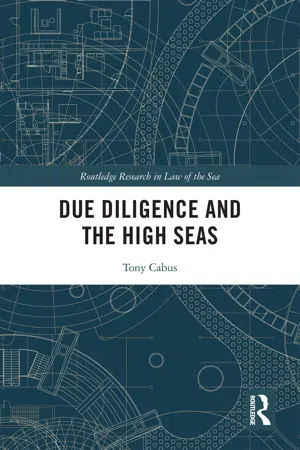
Due Diligence and the High Seas
Tony Cabus
- 176 Seiten
- English
- ePUB (handyfreundlich)
- Über iOS und Android verfügbar
Due Diligence and the High Seas
Tony Cabus
Über dieses Buch
There has been a rapid growth of interest in due diligence, especially in the fields of environmental law and the law of the sea. Yet, confusion seems to surround this notion. Is due diligence a principle, a rule, a standard or something else? This book firstly explores thoroughly the concept of due diligence, its purpose and its mechanisms in order to propose a comprehensive theory of due diligence in harmony with the general law of State responsibility.
In the meantime, this book also explores the usefulness of due diligence to address modern challenges afflicting the high seas. Indeed, while the application of due diligence in transboundary contexts is well illustrated by jurisprudence, its applicability in areas beyond national jurisdiction remains unclear. Yet, a proper usage of this concept may be crucial for the protection of the high seas, as it allows for the intervention of international standards in this fragile area. Hopefully, the concept of due diligence can help compensate the insufficiencies of the United Nations Convention on the Law of the Sea concerning the high seas.
Examining in detail the theory of due diligence, this book will interest international lawyers concerned with this notion. It also offers a new perspective on the UNCLOS through the prism of due diligence and will interest lawyers dealing with the protection of the marine environment and fisheries.